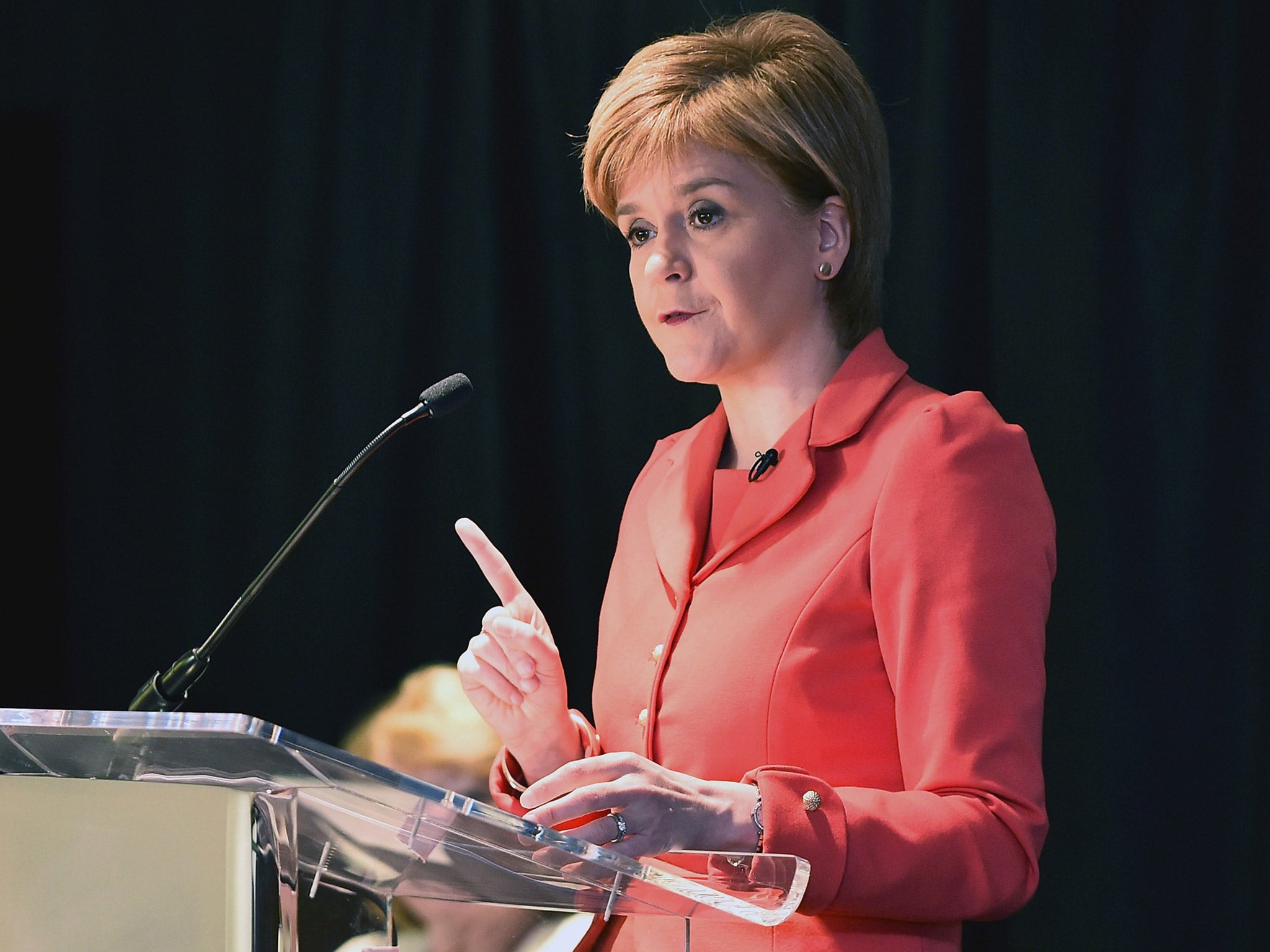EU referendum: In-out vote in May 2016 too soon, says electoral commission
As David Cameron is urged to delay the poll, Nicola Sturgeon says Scotland will not be dragged out of the EU 'against our will'

David Cameron has been warned by Britain’s elections watchdog to avoid going for an early EU referendum because it is such an “important constitutional issue”, as Nicola Sturgeon prepares to tell the Prime Minister that Scotland will not be dragged out of Europe “against our will”.
Allies of the PM are urging him to hold the vote on the same day as the local and European elections on 5 May 2016, to use the momentum for reform in Brussels and capitalise on his post-election honeymoon.
But a report by the Electoral Commission warns that holding the plebiscite on the same day as other elections would confuse voters and fail to allow enough time to debate the issues of the referendum. It also says there should be a period of at least six months between the referendum legislation being finalised and the date of the poll.
The report will be welcomed by Eurosceptic Tory MPs, who want the referendum to be held later, possibly close to the deadline of 2017, to give enough time to expose what they see are the dangers of remaining in the EU.
Others, including George Osborne, also want a later vote to enable Mr Cameron to be given enough time to secure meaningful reform from Brussels to campaign for a credible Yes vote to remain in the EU.
The warning emerged as Ms Sturgeon prepares to deliver her maiden speech in Brussels as First Minister this week, when she will reaffirm her demand for a “double lock” referendum – in which all nations of the UK would have to vote No in order to trigger Brexit. If Scotland voted to remain in Europe but England voted to leave, Ms Sturgeon would have a case to demand a second independence referendum for Scotland.
Mr Cameron has dismissed any suggestion of a double lock, insisting that the UK will vote as one. However it may be out of his hands if a region-by-region breakdown of results reveals Scotland has voted differently from the rest of the UK.
In her speech at the European Policy Centre this week, the First Minister will say that the case for continuing EU membership is vital to the Scottish economy and jobs – including 46 per cent of Scotland’s international exports.
Ms Sturgeon will say: “We value Scotland’s place in Europe, and the benefits it brings in terms of jobs and investment – with more than 300,000 Scottish jobs estimated to be associated with our exports to the EU.
“Perhaps most fundamentally of all, the freedom to travel, study and work across Europe has brought major benefits to Scotland. At present there are 171,000 people from elsewhere in the European Union who live and work in Scotland. They contribute hugely to the diversity of our culture, the prosperity of our economy, and the strength of our society.
“Polls in Scotland consistently show strong support for EU membership. That is why will propose a ‘double lock’, meaning that exit from the European Union would only be possible if all UK nations agreed.”
The Electoral Commission carried out a report into last year’s Scottish referendum and concluded that “holding a poll on such an important constitutional issue on a separate day from any other elections helped both administrators and campaigners plan their activity more effectively and gave voters space to engage with the issues”. A new paper on the in-out referendum published by the watchdog earlier this month said: “For other high-profile issues likely to attract cross-party campaigning, such as the UK’s membership of the European Union, a referendum should be held on a separate day to other polls. A significant number of important polls are already scheduled to take place on 5 May 2016, including: elections for the Scottish Parliament, the National Assembly for Wales, the Northern Ireland Assembly, Police and Crime Commissioners in England and Wales, the London Assembly and Mayor of London, and local authorities in many parts of England.
“It is important that voters and campaigners are able to engage fully with the issues which are relevant at these elections. It is also important that any debate about the UK’s membership of the European Union takes place at a time that allows the full participation of voters and campaigners, uncomplicated by competing messages and activity from elections which might be held on the same day.
“We therefore believe that a referendum on an issue as important as the UK’s membership of the European Union should not be held on the same day as the other polls taking place on 5 May 2016.”
Subscribe to Independent Premium to bookmark this article
Want to bookmark your favourite articles and stories to read or reference later? Start your Independent Premium subscription today.

Join our commenting forum
Join thought-provoking conversations, follow other Independent readers and see their replies